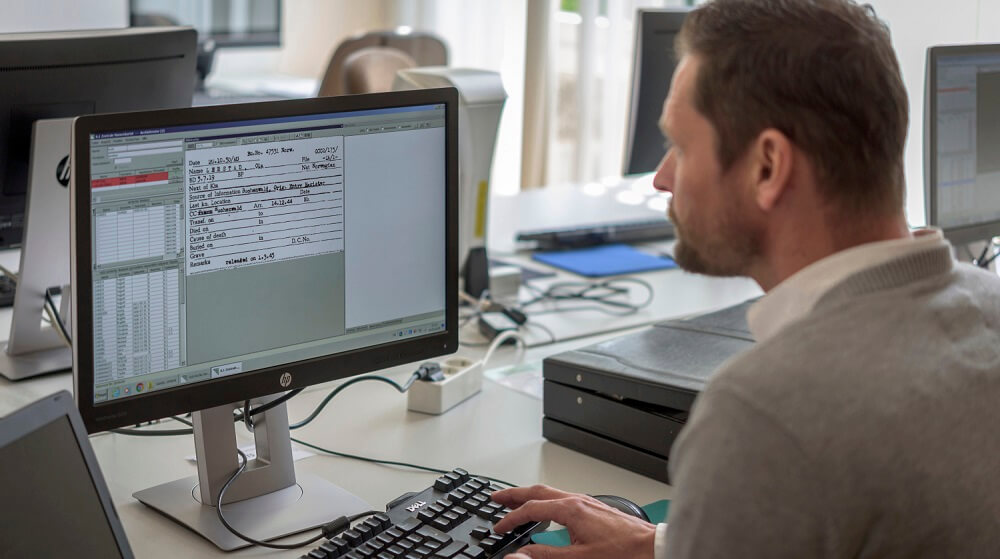OuSArchiv Video Tutorial

A remarkable number of the documents kept at the Arolsen Archives have been digitized: over 85 percent of the collection has been scanned and can be viewed with the OuSArchiv program. It is available to researchers in the reading room of the Arolsen Archives as well as a number of copyholder institutions in different countries.
Because OuSArchiv is a powerful and complex tool for searching and retrieving many millions of documents and pieces of data, its interface and functionality are not self-explanatory. A six-part video tutorial explains how to use OuSArchiv to successfully explore the digital holdings of the Arolsen Archives and retrieve the best possible results.
The tutorial looks at the different areas and functions of the program interface and explains how the digital collections of the Arolsen Archives are structured and organized. It discusses the various search masks, shows how to navigate through folders and files, and how to save documents for research purposes. We also show how to search for individual people using the Central Name Index, and share tips on finding materials about specific groups, such as Jewish victims and survivors.
Research at the Arolsen Archives
The Arolsen Archives are located in Bad Arolsen, Germany. If you would like to visit us to carry out your own research in OuSArchiv, we recommend watching the video tutorials to prepare your trip to our reading room. Our staff is happy to answer any further questions you might have, and of course, we will assist you during your research on-site.
In order to apply for a visit to our reading room, please submit your request in advance using our online form.
OuSArchiv at other Locations
OuSArchiv can also be used in the reading rooms of the following institutions that hold a copy of the the digital collections of the Arolsen Archives (so-called copyholders):
- United States Holocaust Memorial Museum (USHMM) in Washington, D.C., USA
- The Wiener Holocaust Library in London, UK
- Yad Vashem in Jerusalem, Israel
- Archives Nationales in Pierrefitte-sur-Seine, France
- Instytut Pamięci Narodowej (IPN) in Warsaw, Poland
- Bundesarchiv in Koblenz, Germany
Please contact these institutions directly for more details.
The OuSArchiv Video Tutorial Series was produced through the Improving Access initiative, with the support of the United States Holocaust Memorial Museum (USHMM) and The Wiener Holocaust Library.

